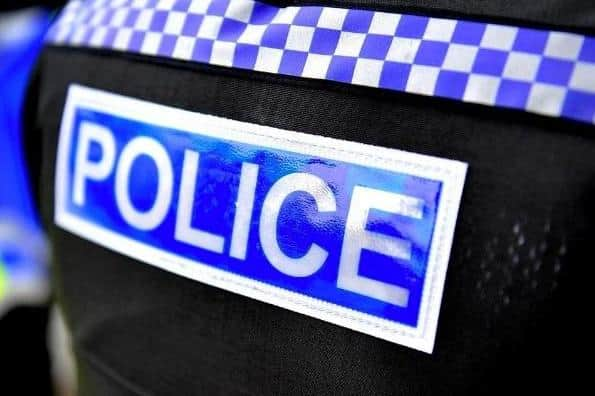What is county lines? Here is everything you need to know
and live on Freeview channel 276
Sussex Police said that county lines is the name given to drug dealing where organised criminal groups (OCGs) use phone lines to move and supply drugs, usually from cities into smaller towns and rural areas.
The force added that the OCGs exploit vulnerable people, including children and those with mental health or addiction issues, by recruiting them to distribute the drugs, often referred to as ‘drug running’.
Advertisement
Hide AdAdvertisement
Hide AdSussex Police has a list of signs to look out for that may indicate that someone is involved in county lines. The police said you should look out for people repeatedly going missing from school or home and being found in other areas, having money, new clothes or electronic devices and they can’t explain how they paid for them, getting high numbers of texts or phone calls, being secretive about who they’re speaking to, decline in school or work performance and/or significant changes in emotional or physical well-being.


OCGs also use social media to drug deal. The police said the groups dvertise drugs by sharing photos, videos, they have statuses showing money, new drugs or when the dealer is open for business, the dealers share ‘stories’ to followers, using social platforms to expand their network with ‘suggested’ friends, they use hashtags linked to drugs, they use emojis as code for drug, violence and sexual activities, eg the snowflake emoji (for buying cocaine), 8-ball emoji (for buying an eighth of a gram) or the rocket emoji (for purity of drugs).
‘Cuckooing’ is a term you may hear often when reading something about county lines. Police said that ‘cuckooing’ exploits vulnerable people by using their home as a abse for dealing drugs.
Police said that dealers often convince the vulnerable person to let their home be used for drug dealing by giving them free drugs or offering to pay for food or utlities.
Advertisement
Hide AdAdvertisement
Hide AdOften OCGs target people who are lonely, isolated, or have addiction issues. It’s common for OCGs to use a property for a short amount of time, moving address frequently to reduce the chance of being caught, police added.
Here are several signs that might indicate someone is a victim of ‘cuckooing’ according to the police.
They may have frequent visitors at unsociable hours, changes in your neighbour’s daily routine, unusual smells coming from a property and/or suspicious or unfamiliar vehicles outside an address.
You can contact the police if you are concerned about drug-related crime in your area or think someone may be a victim of drug exploitation on 101, or if it is an emergency you can reach the police on 999.
Advertisement
Hide AdAdvertisement
Hide AdThe police also offer silent 999 calls if you are in danger and can’t talk on the phone and follow these instructions depending on whether you are calling from a mobile or a landline.
You can also report it online, or contact Crimestoppers anonymously on 0800 555 111 or via crimestoppers-uk.org.
The police reassure that personal details are taken, information cannot be traced or recorded and you will not go to court or have to speak to police when contacting Crimestoppers.
The police also have a list of further information and support when it comes to county lines.
Advertisement
Hide AdAdvertisement
Hide AdThe National Crime Agency County Lines website explains more about county lines and indicators of exploitation in your area, Safe 4 Me has details about support services nationally for young people impacted by Child Criminal and Sexual Exploitation. They also have lots of information regarding specific forms of exploitation, understanding trauma, rights and the law and much more, The Safeguarding Network have helpful tips for understanding indicators of exploitation and what may make a young person more vulnerable to being exploited, and the NSPCC Net-Aware website offers guidance on understanding specific apps and platforms that young people may be using.
Read more trending stories here:
